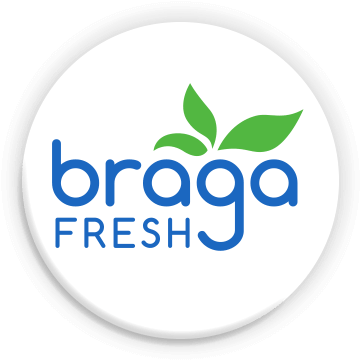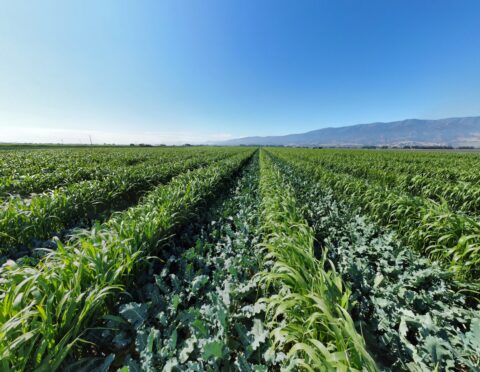
regenerative trials
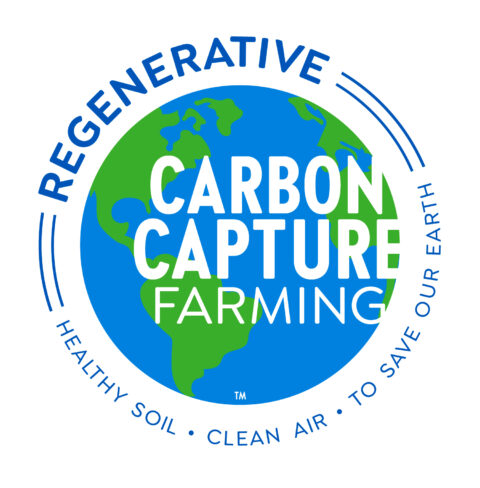
carbon capture farming
Our goal is to increase soil carbon and decrease tractor field tillage to ultimately reduce our overall C02 emissions and start rebuilding our soil health for the long term.

regen trials: progress
We are capturing and sharing our journey with our regenerative farming trails as learn from our progress and failures.
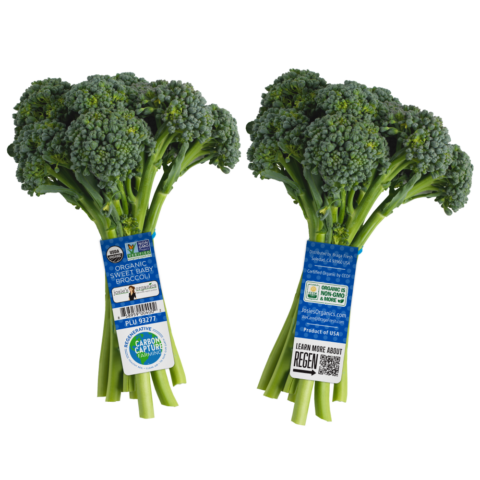
buy regen
On every bunch of regenerative grown product, the carbon capture farming mark emphasizes “healthy soil, clean air to save our earth.” Those are all things we at Braga stand behind.
By paying the premium price associated with our regeneratively grown product you are helping us offset the failures, the research development and collaboration efforts with academia and industry peers.
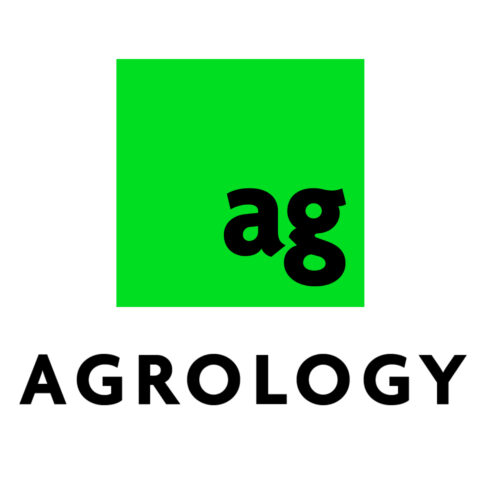
agrology
We partnered with predictive agriculture company, Agrology, to install a regenerative agriculture technology platform to track and quantify soil carbon in real time.
science & technology
Joint recipient of Science & Technology Circle of Excellence Award for contributions & accomplishments that advance the industry through innovation, collaboration & leadership.
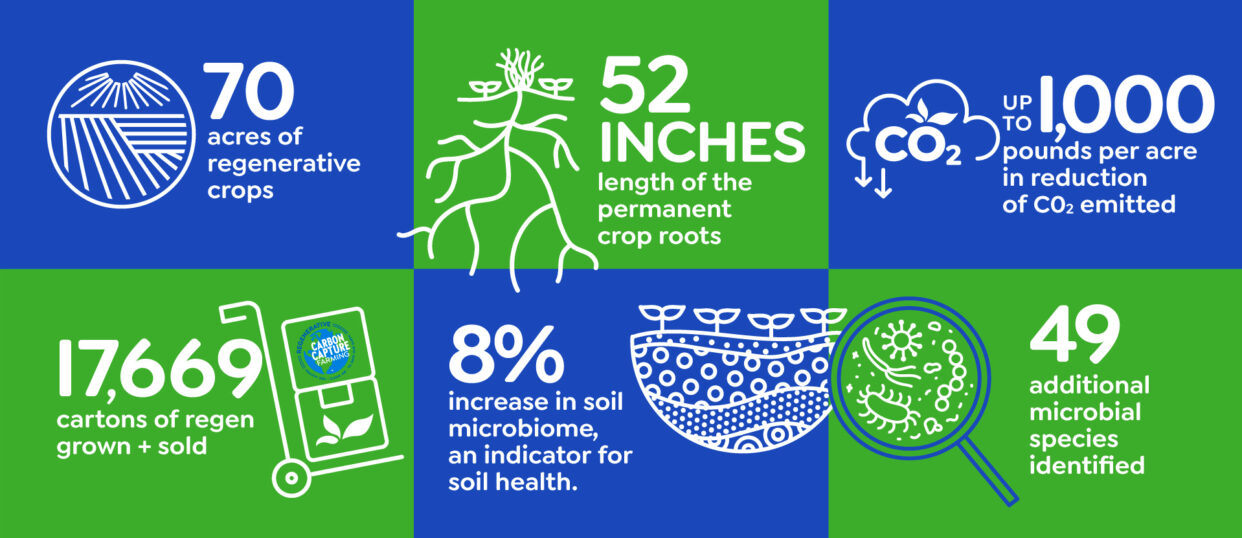
regen: a farmers story
At Braga Fresh our efforts to educate all audiences on our regenerative carbon capture farming trials, is an ongoing effort.
The below infographic is our CEO, Rod Braga’s vision to visually explain the difference between traditional farming and regenerative farming.
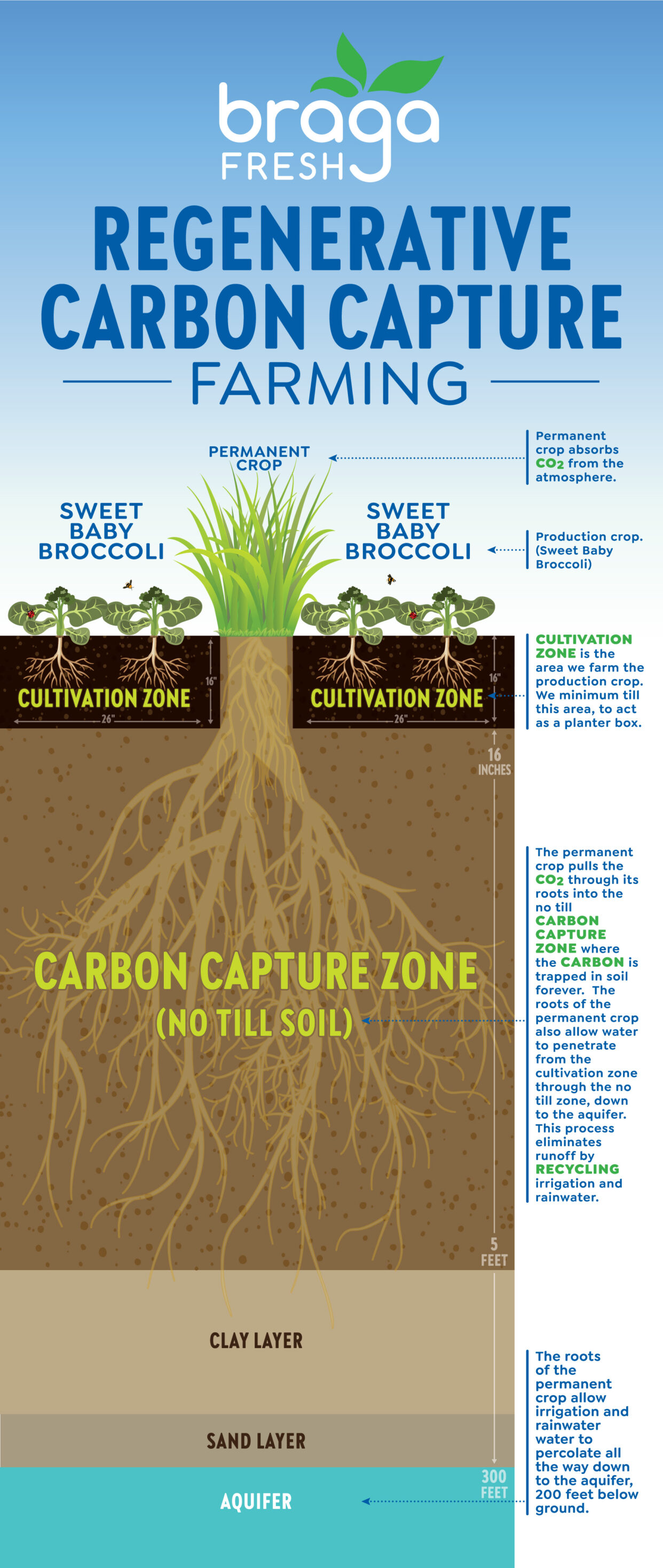
POTENTIAL IMPACT
Tillage operations currently employed by our industry weakens soil aggregate stability that leads to reductions of soil microorganisms that populate the soil microbiome. We also believe that most common tillage practices utilized by the industry inadvertently increases crop water consumption and creates a need for excess fertilizer. Our overall intent with these regenerative crop trials is to confirm our hypothesis and feasibly shift/change these farming challenges. The objective of our regenerative farming trials is to increase soil carbon and a decrease consumption of diesel fuel that powers the tractors conducting the tillage operation. Those changes would reduce our overall CO2 emissions.
